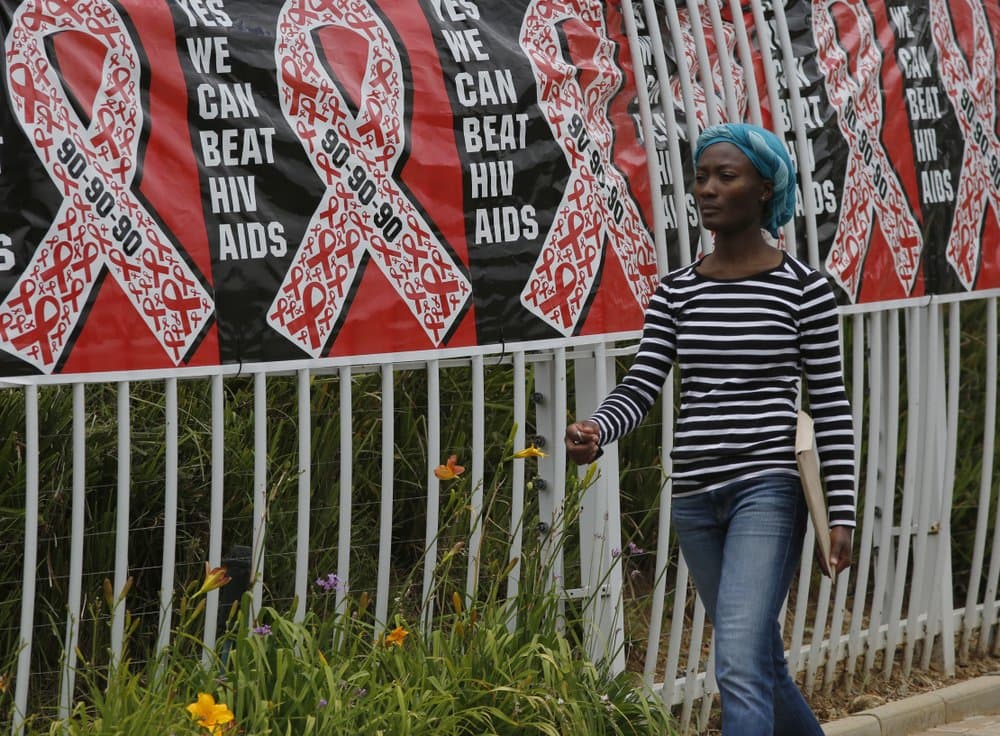Fight against HIV in Africa put in jeopardy by suspension of U.S. funding
LGBTQ rights activist and journalist in Cameroon.
Anti-AIDs workers panic as Trump regime puts millions of lives at risk.

By Jean Jacques Dissoke
In Cameroon alone, workers at about 200 organizations fighting HIV/AIDS are panicked at the prospect that the new cutoff of U.S. aid will doom their efforts, eliminate their jobs and result in AIDS roaring back as an uncontrolled killer of Cameroonians, in particular women, children, and LGBTI people.
The same fear grips anti-AIDS workers throughout Africa and elsewhere among the 55 countries where the huge U.S.-funded Pepfar program has battled against HIV/AIDS, saving more than 25 million lives in the past 20 years.
“A plunge into the unknown” is how François Venter, professor of medicine at the University of Johannesburg, describes the situation in Malawi, Zimbabwe, Mozambique and Uganda,
“People are panicking on the ground. If Pepfar funding is completely stopped in a country like Uganda, for example, it means that no one will be able to access antiretroviral drugs and that hundreds of thousands, if not millions, of people will die. We have had no communication from the Americans on the future of this plan and this lack of information is very frightening.”
By decree of the Trump administration, all U.S. foreign aid has been frozen for three months, with the exception of Egypt- and Israel-bound aid and “life-saving humanitarian assistance”. It’s unclear exactly which types of humanitarian aid Trump officials will classify as “life-saving”. Will it include preventive antiretroviral medications that protect millions of people against HIV? Will it include other anti-HIV services such as testing and safe-sex education?

In addition to medications, Pepfar supports medical personnel, HIV screening and prevention campaigns serving 20 million people in about 30 African countries.
The legality of the Trump cutoff is questionable, because he is single-handedly refusing to implement American laws passed by previous sessions of Congress and enacted by presidential signatures. Courts have blocked a similar funding cutoff that Trump unilaterally declared for domestic programs, but no court challenge has been reported regarding his unilateral cutoff of international aid.
“These programs have been in place for 20 year, since the Bush administration,” recalls Venter. “They have benefited millions of people and are aimed at populations most exposed to HIV and the results are exceptional. Stopping this program would be terrible.”
Without U.S. support and without adequate local financial resources to support the work themselves, African nations possibly could find other international partners who would take the place of the United States in the future, according to a senior official at the African Center for Disease Prevention.
That “this cessation of funding can expose people living with HIV to an immediate increased risk of illness and death and undermine efforts to prevent transmission in communities and countries, because I remind you that under well-conducted antiretroviral treatment, a controlled viral load means ZERO TRANSMISSION”, Jérôme Salomon, assistant director-general of the World Health Organization (WHO), wrote on the social network LinkedIn.
In Cameroon, the HIV/AIDS prevalence rate is 2.1% among the general population, but it is 20% among men who have sex with men (MSM) and 25% among sex workers. In recent years, the number of HIV infections has been rising among young girls and adolescents, according to the national strategic plan to combat HIV, tuberculosis and malaria during 2024-2030.





